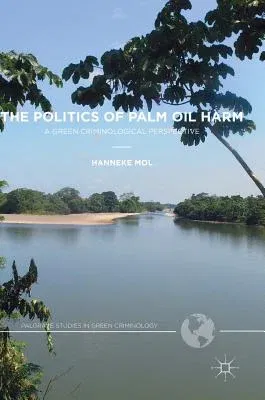Hanneke Mol
(Author)The Politics of Palm Oil Harm: A Green Criminological Perspective (2017)Hardcover - 2017, 1 September 2017

Qty
1
Turbo
Ships in 2 - 3 days
In Stock
Free Delivery
Cash on Delivery
15 Days
Free Returns
Secure Checkout

Part of Series
Palgrave Studies in Green Criminology
Print Length
245 pages
Language
English
Publisher
Palgrave MacMillan
Date Published
1 Sep 2017
ISBN-10
3319553771
ISBN-13
9783319553771
Description
Product Details
Author:
Book Edition:
2017
Book Format:
Hardcover
Country of Origin:
NL
Date Published:
1 September 2017
Dimensions:
21.01 x
14.81 x
2.24 cm
Genre:
Ecology
ISBN-10:
3319553771
ISBN-13:
9783319553771
Language:
English
Location:
Cham
Pages:
245
Publisher:
Weight:
571.53 gm